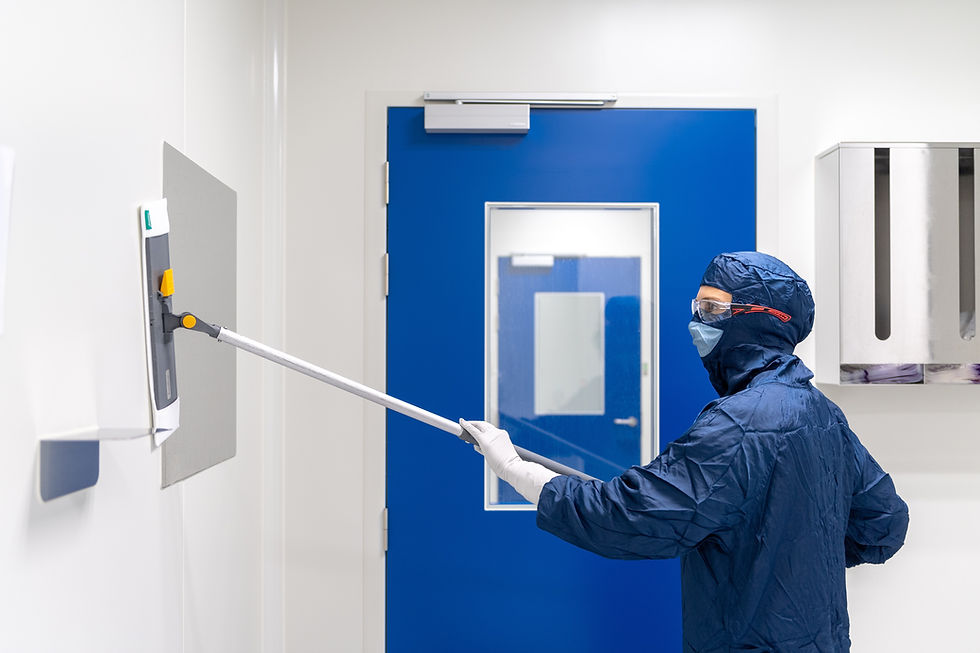Biden’s bill would be a cornerstone for US climate policy
- Shidonna Raven

- Mar 4, 2022
- 3 min read
By Marianna Arcaya
February 14, 2022
Source: The Boston Globe Photo Source: Unsplash, Jay Mantri
While passing Build Back Better hardly guarantees that we can avert the worst effects of climate change, the United States has no feasible path without it.
Two years of anxiously checking the latest COVID-19 rates, bracing for new close-contact notifications from our schools, and even monitoring the viral load in our sewers has been more than enough for most of us. We don’t want to hear the term “public health” again, but the terrifying truth is that the worst is yet to come. The public health threat that must be confronted next with the same urgency is climate change. And there is no vaccine around the corner.
That’s why the recently passed Bipartisan Infrastructure Investment and Jobs Act and the Build Back Better bill are essential to the well-being of Americans.
Climate change is every bit as much a public health crisis as the pandemic. Burning fossil fuels for energy already kills millions of people globally each year, and these numbers are on the rise. Increasingly dangerous disasters are coming, including deadly heat, pathogen-seeding floods, and extreme drought. Add this to the cardiovascular, reproductive and respiratory to a broad range of people caused by a warming world. Fossil-fuel combustion also creates air pollution, killing about 7,600 residents in Massachusetts alone each year. Burning fossil fuels poisons people in neighborhoods with heavily trafficked roads, airports, and ports, inside homes, and near the site of fossil-fuel production. Ground-level ozone forms more readily on hot days, and Western wildfires blanketed Boston in smoke this past summer. Asthma, dementia, heart disease, cancer, and stroke are among the health consequences of breathing polluted air. Shifting away from fossil-fuel consumption and combatting injustice are the two keys to solving the climate crisis. The bipartisan Infrastructure Act provides vital funding for some of the measures the United States needs to take: Expand public transit, install electric vehicle chargers throughout the country, develop new clean energy technology, build more transmission lines to connect solar and wind projects to the grid, move critical infrastructure away from flood and fire risks, and construct new protections against flood, heat, and fire. But the Infrastructure Act is not enough. Any chance of meeting America’s CO2 reduction targets hinges on passage of the proposed Build Back Better bill, which still awaits congressional action.
Although the infrastructure funds will help, Build Back Better will provide rebates and tax credits for people to purchase electric vehicles and appliances, complete home energy retrofits, install rooftop solar, and make the switch from fossil-fuel heating to heat pumps. It brings climate change solutions home.
About $320 billion of the $550 billion included in Build Back Better would go to supporting key energy transitions. Some of the cheaper programs, though, are among the most important in light of President Biden’s Justice40 Initiative — a promise to deliver 40 percent of the benefits of federal climate and energy investment to “communities that have been historically marginalized, underserved, and overburdened by pollution.”
Communities that have been resisting climate injustice for years should be in the lead, with support from private, academic, public sector partners. What can these supporting roles look like? BlocPower, a green energy company grounded in climate justice principles, is currently training and employing 1,000 justice-involved young people in the Bronx to convert buildings from fossil-fuel heat, install solar, and add broadband to public housing for a community-owned, low- and no-cost Wi-Fi network.
Academics can provide support by using Participatory Action Research to help communities clarify local climate action priorities. Equity-focused healthy-communities planning can help front-line communities throughout our region shape how infrastructure dollars from the Infrastructure Act and Build Back Better are spent.
While passing Build Back Better hardly guarantees that we can avert the worst effects of climate change, the United States has no feasible path without it. The longer we wait, the closer we get to a dangerous tipping point that will make an orderly, just, and healthy transition away from fossil fuels impossible.
When should we address climate change? When is too late? Why?
Share the wealth of health with your friends and family by sharing this article with 3 people today.
If this article was helpful to you, donate to the Shidonna Raven Garden and Cook E-Magazine Today. Thank you in advance.






Comments